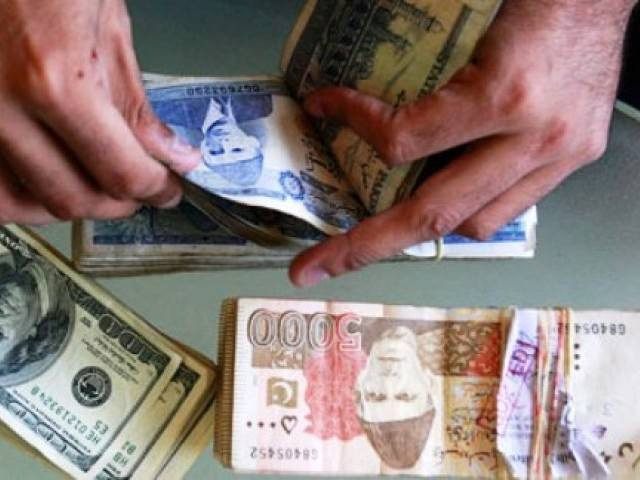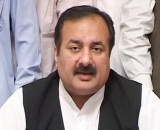Govt plans to borrow money to return outstanding tax refunds
Refunds of Rs35b to Rs40b to be given only to textile exporters

Refunds of Rs35b to Rs40b to be given only to textile exporters. PHOTO: REUTERS
Finance Minister Ishaq Dar Saturday held consultations with top authorities over his plans to repay tax refunds and introduce a tax amnesty scheme for the realty sector, according to sources in the Ministry of Finance.
PM to give out two dozen tax refund cheques next week
Special Assistant to Prime Minister on Revenue Haroon Akhtar Khan and Federal Board of Revenue Chairman Nisar Mohammad Khan attended the meeting.
In the last review of the three-year $6.2 billion bailout programme, the IMF had cautioned Pakistan to “refrain from (giving) any form of amnesty” and reduce the outstanding stock of tax refund claims to a level consistent with no more than a three-month flow. Prime Minister Nawaz Sharif directed to work out the tax amnesty scheme for the realty sector amid pressure exerted by ruling party legislators.
The government on Saturday also discussed the possibility of returning Rs35 billion to Rs40 billion sales tax refunds in the first phase, but only to textile exporters. The amount will be paid before the end of the current month, according to officials.
The FBR does not have a plan to pay income tax refunds that are mounting after the government introduced dozens of new withholding taxes, they added.
The FBR has already set up a Special Purpose Vehicle (SPV) to retire the refunds - a move that has been widely criticised, as taxes cannot be generated by borrowing from markets. The intention of creating the new company is to keep borrowings outside the budget, thereby reducing its deficit and protecting revenue.
The government will pay an interest rate equivalent to Karachi Interbank Offered Rate (KIBOR) plus at least 1% on the amount that it will raise to return the refunds.
Payment of tax refunds pleases traders
The government has not yet officially disclosed the exact size of the tax refunds. However, the latest report of the IMF showed the amount at Rs205 billion as of June 2016. A footnote in the report states, “the total stock of outstanding tax refunds claims, increased to Rs205 billion in June 2016, from Rs200 billion in June 2015”.
It further added that as part of this total stock, outstanding GST (General Sales Tax) refund claims increased to Rs133 billion at June-end 2016, from Rs89 billion at the end of FY2014-15.
However, the FBR is not ready to accept even this Rs133 billion refund figure, claiming that a significant amount of it has been rejected or deferred, which cannot be treated as outstanding refunds.
They said that in the first phase, the government will pay only those refunds whose Refund Payment Orders (RPOs) were issued as of June 2016.
The government may not return Rs72 billion outstanding income tax refunds despite the fact that it is paying billions of rupees in compensation to the big banks for using their money.
The delay in payments of refunds has created a liquidity issue for the industries. People are forced to borrow money to meet their working capital requirements. Over the last three years, the federal government has blocked taxpayers’ refunds to artificially inflate tax revenues in order to meet IMF targets.
The IMF is also opposed to the government’s plans to pay refunds by borrowing from banks. In August this year, Tokhir Mirzoev, IMF’s Resident Representative, had said that the IMF’s position on the issue was that tax refunds should generally be administered through the regular budget process.
Govt may set up ‘new’ company to borrow Rs200b
Parking the debt to be obtained for returning tax refunds in the SPV is not a permanent solution, although it will allow the Finance Ministry to keep the huge amount outside the budget, according to tax experts. Earlier, the government created a similar SPV in the Ministry of Water and Power and parked circular debt of Rs335 billion, which it has not returned till date.
The government is resorting to accounting tricks at a time when it is facing serious problems in meeting its revenue targets for this fiscal year. The FBR sustained Rs56 billion shortfalls in revenue collection in the first quarter despite taking advances and blocking refunds.
It introduced administrative changes at the second tier of the FBR but spared the Chief Commissioner Large Taxpayer Unit (LTU) Karachi-I who missed his quarterly target by Rs35 billion. The Chief Commissioner LTU Islamabad was replaced who had missed the target by Rs22 billion.
Published in The Express Tribune, October 16th, 2016.
Like Business on Facebook, follow @TribuneBiz on Twitter to stay informed and join in the conversation.



















COMMENTS
Comments are moderated and generally will be posted if they are on-topic and not abusive.
For more information, please see our Comments FAQ